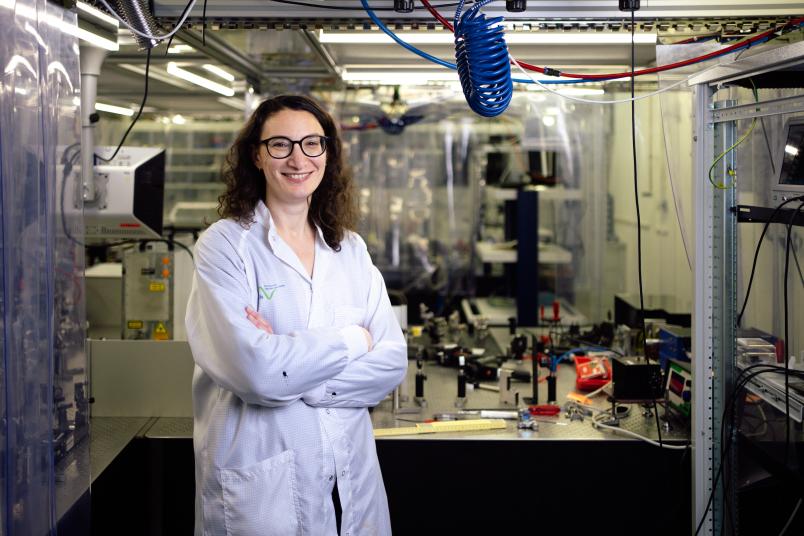
EU funding
Revolutionizing Plasma Control by Lasers
Clara Saraceno will use an ERC Consolidator Grant to develop new methods for adjusting air plasma composition using ultrafast lasers. This revolutionizes light generation, but also other areas.
Plasmas generated using lasers are often used to generate waves in rarely accessible regions of the electromagnetic spectrum, but for this they have to use complex and energy-intensive laser sources. Clara Saraceno, Professor for Photonics and Ultrafast Laser Science at Ruhr University Bochum, Germany, wants to break new ground: In her EXPLORE project, she is developing ultrafast lasers that adapt the plasma properties in such a way, that compact laser sources can be used to generate light of previously unattainable power in an energy-saving manner. She is being funded by the European Research Council ERC with a Consolidator Grant for five years. The grant is endowed with 2.2 million euros.
Optical materials play a crucial role in science and technology and enable scientists around the globe to manipulate light at will and reach the entire electromagnetic spectrum, from X-rays to Terahertz (THz) waves. For this, plasmas are widely used as optical materials, however accessing their nonlinear response requires very high input light intensity, therefore normally very complex, high energy laser systems are needed.
EXPLORE proposes a new way of tailoring the plasma chemical composition using low energy, short pulses of light very closely spaced in time. This will result in new, improved and re-configurable plasma optical properties. “In EXPLORE, we aim to use these improved plasmas to generate and detect Terahertz radiation with performance that is currently impossible to achieve, and with very compact laser sources”, Clara Saraceno explains.
This would not only revolutionize the field of light generation and nonlinear optics but would also have tremendous impact in many fields where atmospheric plasmas are employed, for example in catalysis and atmospheric science.
“The ERC Consolidator Grant will allow me to enter a new field of research bridging plasma, materials, chemistry and laser science while giving us the freedom necessary to explore this risky idea with state-of-the-art tools needed to tackle this complex problem”, says the researcher.